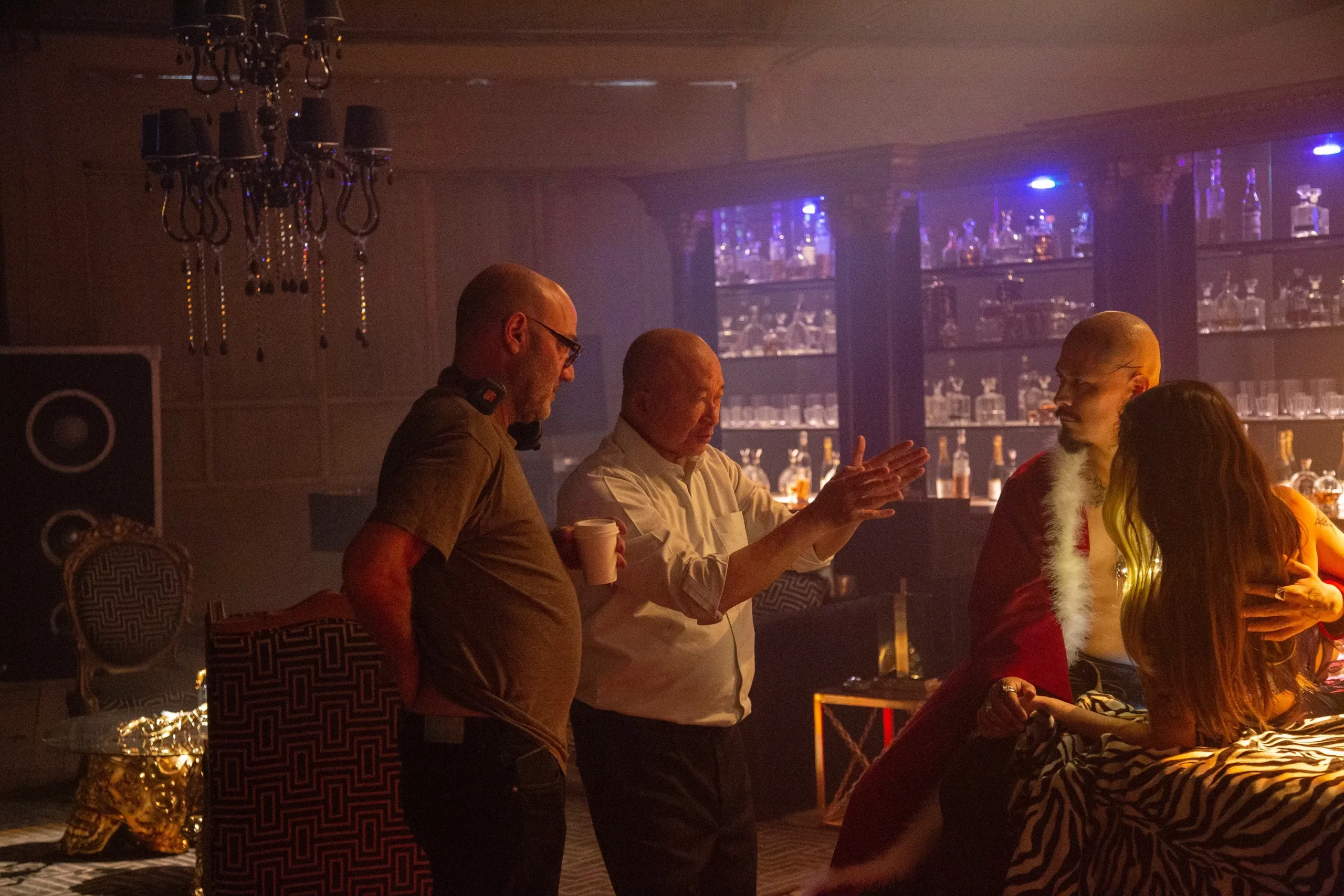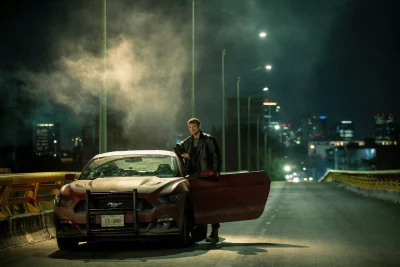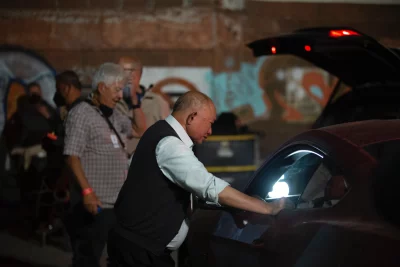
Action Speaks Louder Than Words for John Woo
Film Interviews
In 2003, the science-fiction film Paycheck marked the end of an era for John Woo, the groundbreaking pioneer of the “Gun Fu” movie genre. Once one of Hollywood’s most sought-after action directors, Woo returned home to make films in China once again. 20 years later, he’s back in America for the holiday-revenge thriller Silent Night, which notably includes no spoken dialogue.

On Christmas Eve, Brian Godluck (Joel Kinnaman, Suicide Squad) watches helplessly as his son is killed in the crossfire of a gang fight. While recovering from a bullet wound to the throat—which takes away his ability to speak—Brian resolves to hunt down the men responsible. The next year is spent rigorously training and meticulously planning as Brian prepares for one night of bloody Christmas Eve vengeance.
“I found the script of Silent Night, and I felt so excited about it,” Woo says. The emotionally charged premise, and the idea of an action film that includes no spoken dialogue, captured Woo’s imagination. The director’s Hollywood years were marked by mega blockbusters, and upon returning home, Woo made the two-part battlefield epic, Red Cliff, which broke Chinese box office records. In Silent Night, he saw a chance to do a smaller, more human story. “I’ve been established as a big movie director,” Woo says. “This was my first independent film, but I didn’t care—I just cared about the great story.”
“Now that I can see that some of the young filmmakers who have got some inspiration from my films, I just feel like we are all sharing a good thing all together.”
In his early days in Hong Kong in the ’80s and early ’90s, Woo made a star out of Chow Yun–fat with A Better Tomorrow, The Killer and Hard Boiled, and in America, he consistently worked with larger-than-life celebrities such as Tom Cruise, Nicolas Cage and John Travolta. When it came time to cast the lead in Silent Night, Woo was looking for a new approach. “When we found Joel Kinnaman, I thought he just looked like an ordinary man,” Woo says. “I found that he was a really underestimated actor … and he did all the stunts and all the fighting [by himself].” This last point was particularly exciting to Woo, because it allowed him to take a different approach to the action sequences, replacing quick-cut edits and his signature slow motion with intricately staged long takes, including an unforgettable sequence where Brian fights his way up a winding staircase, done in one continuous shot.
The other leading man in Silent Night, whose part in telling the story was no less important, was composer Marco Beltrami (3:10 to Yuma, Hellboy). “Since we have no dialogue, music and sound was the major language,” Woo says. The mention of music in a John Woo movie immediately stirs memories of the shootout set to Olivia Newton-John’s rendition of Somewhere Over The Rainbow in Face/Off, or the motorcycle chase set to Limp Bizkit’s version of Lalo Schifrin’s immortal spy theme in Mission: Impossible 2.
Once again, Woo’s vision for Silent Night involved a change of pace. “I said, ‘Your music should follow the drama and the character, never using it for action,” Woo says, “and Marco is a very clever, very unique composer, and he got it right away.” When the action kicks into high gear, many of the biggest sequences are done with minimal to no underscoring, creating a more raw and visceral sensibility.
“This was my first independent film, but I didn’t care—I just cared about the great story.”

As a young filmmaker, Woo was inspired by cinematic giants such as Howard Hawks, Sam Peckinpah, Jean Pierre Melville and Martin Scorsese. Now, at age 77, Woo’s own extensive body of work has influenced a whole generation of action directors. The Matrix, John Wick, Atomic Blonde, Gunpowder Milkshake and the works of Quentin Tarantino, Robert Rodriguez, Matthew Vaughn and Zack Snyder are just a few examples of the impact that Woo’s innovative stye has had on popular cinema, and the thought is quite humbling to the veteran director. “Now that I can see that some of the young filmmakers who have got some inspiration from my films, I just feel like we are all sharing a good thing all together,” Woo says, “and then they even make a much better movie than me, so I am really happy about that.”
Next up for John Woo is another American film, an English language remake of his own 1989 classic, The Killer—this time starring Omar Sy (Lupin) and Nathalie Emmanuel of the Fast and Furious series. After that, it’s anyone’s guess, though it seems fair to say that the venerable master of movie mayhem and carefully choreographed chaos isn’t planning on going silent any time soon.
Read more reviews of John Woo–inspired films:
Film Review: The Matrix Resurrections
Film Review: Nobody